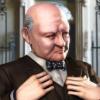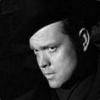-
Content count
288 -
Joined
-
Last visited
About ilitarist
-
Rank
Thumb Citizen
Recent Profile Visitors
-

Three Moves Ahead 603: Against the Storm 1.0
ilitarist replied to Rob Zacny's topic in Three Moves Ahead Episodes
You make it sound like this is about greed, but it's more about forums dying as a platform in general. Perhaps it's a self-fulfiling prophecy but you can see there aren't many people here. I'm pretty sure you can ask Len on social media they mention at the end of the episode. https://twitter.com/TilFolkvang -

Three Moves Ahead 581: A Look Ahead to 2023
ilitarist replied to Rob Zacny's topic in Three Moves Ahead Episodes
A lot of people moved on to Paradox strategies that aren't usually about winning or outsmarting AI but about telling a specific story and achieving something. But if you want something closer to Civilization - Old World does that well enough. -
ilitarist started following Strategy games for Android
-

Three Moves Ahead 556: Ethics in Strategy Games
ilitarist replied to Rob Zacny's topic in Three Moves Ahead Episodes
The thing about strategy game where there's "be the last man standing" victory condition - this elimination play becomes optimal, no way around it. The game might punish me with internal instability, other players hating me and so on - but there won't be anyone to hate me or to exploit my internal problem if everyone else is dead. An approach like Stellaris helps: there's an end-game crisis and diverse prospering galactic community might be better suited to to handle it but I don't think it quite works. Another issue I always see in historical games (and the episode touches on that) is presenting historical actions of the empire as beneficial to the player and the country even if the game acknowledges them as unethical. Usually it's stuff abstracted as stability or prestige. You have to fight dissent or your prestige and stability go down. Crusader Kings or Old World model of showing you real people helps with both issues. You are never alone in the world and so internal threats might be existential. And various decisions donct just benefit the nation by raising numbers, they benefit specific people. -

Three Moves Ahead 542: The State with Bret Devereaux
ilitarist replied to Rob Zacny's topic in Three Moves Ahead Episodes
Interesting thoughts. With obfuscated mechanics it's often a oroblem when the nature of obfuscation is obfuscated, if you know what I mean. AFAIK FTL random outcomes are pure chance. Having an experienced crew or specific upgrade doesn't affect those chances. In a situation where crewman or upgrade can affect the situation you get a special option giving a guaranteed good outcome. I have only seen King of Dragon Pass briefly but I got an impression that there's no way to know what affects what. That's probably the idea: you're supposed to imagine everything affects everythin just like those tribal people probably imagined their rituals and past deeds affected their fate. But from gameplay perspective it's not great and may make the illusion break when you realize the real math behind it all. It you know that the chance that minotaurs come is only based on your diplomacy score or something it's more disappointing than being told about it directly by the game. Crusader Kings 3 is a good approach, I feel. It often tells you something like "you have 89% to succeed in this doplomacy challenge" and you're told if some traits affect that chance. But sometimes you get a decision with hidden chances, like in duels or character interactions: you're supposed to make a guess based on a character background. It's usually clear what is the scope of things that affect the outcome -

Three Moves Ahead 539: Conquest of Elysium 5
ilitarist replied to Rob Zacny's topic in Three Moves Ahead Episodes
There's a term "comfort food games"! Someone mentioned Android version and sadly there's only Conquest of Elysium 3. -

Three Moves Ahead 535: Deck Builders
ilitarist replied to Rob Zacny's topic in Three Moves Ahead Episodes
Sal is clearly meant to be a tutorial character with only basic mechanics and clear deck archetypes (your battle deck is either Combo or Bleed, your negotiation deck is either Persuasion or Threaten). Others are much more interesting. Prestige levels work fine... for some time. I've won Prestige 6 as Sal and I don't like that Prestige 7 just turns off character progression system. I haven't even gained most of those bonuses, feels wrong to cut it out. More importantly, there are 6 different Prestige ranks in the game. I like Brawl mode and I've played it once as Sal on Prestige 1. Now Prestige 2 is available to me but after I've beaten the main game on Prestige 6 it's boring and straightforward. And it's the same for every other character. I would probably play Prestige 1 for each to learn their mechanics, but after that I'll have to play 4 more games to get to Prestige 6. Same for their brawl. So I'm probably done with Griftlands cause I'll have to put as much time I've already put into it to play other characters on a suitable difficulty level. -

Three Moves Ahead 533: Old World
ilitarist replied to Rob Zacny's topic in Three Moves Ahead Episodes
It's fine now. -

Three Moves Ahead 526: Total War: Rome Remastered
ilitarist replied to Rob Zacny's topic in Three Moves Ahead Episodes
I think they meant a lot of conveniences and technical upgrades you can't live without once you've tried them. Like widescreen and high-resolution support, customizable and generally better UI. -

Three Moves Ahead 523: Workers and Resources: Soviet Republic
ilitarist replied to Rob Zacny's topic in Three Moves Ahead Episodes
A small and useless pedantic correction: in USSR you mostly left your car outside of your house, in the courtyard, between front door and playground. Garage in the very same courtyard is a Soviet male fantasy, and you need a garage cause the car needs constant maintenance. -

Three Moves Ahead 517: An Interview with Lou Coatney
ilitarist replied to Rob Zacny's topic in Three Moves Ahead Episodes
Usually, I'm not into wargame episodes. I haven't played any tabletop wargames and in general, this hobby is not popular in Eastern Europe. So I rarely understand any references. Which of course doesn't mean those are bad episodes, just not for me. But this talk going to the roots of the hobby and general ideas was great. Rob & Bruce talks added on top were a great addition too. Looking forward for more episodes like this. -

Three Moves Ahead 515: Faction Design
ilitarist replied to Rob Zacny's topic in Three Moves Ahead Episodes
What a great episode! One thing that irritates me about this trend that you didn't mention is opponent faction differences not playing enough into your strategy. A lot of it transforms into solitaire games. In TWWH2 you probably care that high elves use a lot of archers in combat. But High Elves have a lot of other strategic map game mechanics you might never care about or even notice if you're not playing as them. Like in Civ6 I will never care about any special mechanics of AI, period. From what I saw Diety players don't too. I'll only care about their special unit if I fight them in a specific era. But anyway Rowan and Rob touch on an interesting subject about old-school faction differences. It's similar in Age of Empires 2, Heroes 2-3, and even Europa Universalis 4, I'd say. You look at those factions and think they're palette swaps with some minor differences. With Heroes 3 specifically all the creatures are tiered and in a fair fight, a higher tier melee unit will always lose to a lower tier unit. All the magic is available to all factions. Even more so, starting as a faction doesn't mean you're stuck with it, you can use towns you capture, hire heroes from other factions, and so on. I remember when I was a kid it felt not different enough to me, I wanted to play games like Disciples 2 or StarCraft, and WarCraft 3 where factions had proudly presented their differences. Later I realized that Heroes 3 did something very clever by allowing you to play every faction the same way till you notice their strength and weaknesses. Something that looked like a small thing might blow up big. Everybody knows how unique Necromancers are, but then you look at Inferno and realize they have a building allowing teleporting between Inferno towns. Wizard town has a tier-one ranged unit which makes them perfect for rushing low-level neutrals. Human Knights feel vanilla till you realize that their troops benefit from upgrades the most and thus are perfect for the economic game - even if they don't have anything to help with the economy specifically. So really those troop, buildings, and hero differences are all in "cheaper archers" territory but when you're mastering the systems you realize that those differences emphasize different strategies. Everyone can cast Fireball and Armageddon but Inferno benefits from it the most cause they have units with fire invulnerability, that kind of thing. And I understand why is this kind of faction differentiation is dying out. Most players won't go deeper than I did as a kid, they'd think those differences are superfluous. Heroes 5 and later ones tried to add big important features to factions to differentiate them, even if in reality those features weren't any more important than troop/buildings/hero skills differences in previous games. But it gives players a promise of depth. Endless Legend is the best example of this. Every faction has a flagship feature like they don't declare war ever or only have one city. And those are important but just a part of faction identity. Really all the factions in EL are more similar than TWWH factions. They all have the same buildings, have access to a variety of mechanics even if they have some of their own mechanics added on top. When you play Wood Elves in TWWH you listen to a completely new folk-rock album which might be good or not. In Heroes 3 or EL forest factions release a cover album for the base game mechanics. Know what I mean? Very different factions can play similarly in EL if they ignore their special mechanics and just concentrate on some basic strategies affected by their unit roster and hero skills. Just like TWWH2 EL promises you 8 games for the price of one, but it tricks you by selling 1 good game with 8 playstyles, not 8 games that include a freaking Chaos campaign. In EL playing a new faction feels like mastering systems, in TWWH2 and other modern games it's more like playing a tutorial campaign again, probably for just one time without ever returning. (Really, after Rowan speech I'm starting to suspect I don't like TWWH2 because I've only really played Chaos and Fantasy Joan of Arc campaign, both of which were boring) -

Three Moves Ahead 513: 2020 in Review
ilitarist replied to Rob Zacny's topic in Three Moves Ahead Episodes
Great discussion about all of those smaller tectics/roguelike games. It's true they feel exhausting. And it's funny how you talk about them as "casual". A lot of complex tactics I've played gave me a lot of busywork or trap choices boiling it all down to an easier game that Into the Breach. Say, Disgaea uses a lot of numbers, but it's not a hard game, especially cause it doesn't have ItB forced iron man all the time. Rowan mentioned Final Fantasy X and those games knew how to balance those exhausting all-or-nothing puzzle fights with a relaxing grind. Dao is the goal, not just the way, so in a good JRPG combat is interesting as in what skills your characters use and develop, what items they "steal" or if they can use some other mechanics like eating or taming monsters during the battle. It's never stressful cause you can always grind more. But it turns a trashfight into something more than a nuisance on your way to victory screen with loot and xp. -

Three Moves Ahead 511: Wingspan
ilitarist replied to Rob Zacny's topic in Three Moves Ahead Episodes
I can confirm thay Twilight Struggle is not a great video game adaptation. I spent several hours with it after playing the tutorial and I'm still not quite sure how to play it. Also it's very plain looking. Standard fonts, lots of empty space. Feels like it was developed for phones and for people who already know how to play the game. -

Three Moves Ahead 510: Möbius Front '83
ilitarist replied to Rob Zacny's topic in Three Moves Ahead Episodes
Troy did a great job explaining the game this time. Sometimes those reviews sound aimed at people who have already played the game or closely followed it, and with wargames it's often hard to understand what happens from the episode. But this time it was great. Nice listen. I too find it extremely strange that Zachtronics would make something that sounds so generic. -

Three Moves Ahead 509: The Insider and All The President's Men
ilitarist replied to Rob Zacny's topic in Three Moves Ahead Episodes
That episode was cool and thought-provoking. I watched both movies for the first time before listening to it. Those movies reminded me why Hollywood doesn't do a lot of slow thoughtful movies about law or journalism. When I watch a movie about badass cop who does what has to be done even if he has to lose his badge I can understand the motivation and morals of the characters. But those movies, while fascinating, feel deeply alien to me. At the moment in my Belarus people are killed on the street and instead of investigating police jails journalists who do investigate the murder. But everybody sees this as something temporary. Meanwhile, a lot of details in this movie seem insane. In Insider early on you learn that tobacco companies never lose a trial even though everybody knows they're in the wrong. Everyone understands that ex-researcher of tobacco company definitely knows some dirt about the company. And this is not a problem in the movie, it's not even regarded as something wrong. Maybe I should understand that this is wrong and judge character behavior accordingly, but I'm not sure what the movie assumes I know or feel. It's much worse in All the President's Men. I'm glad you guys have said that the plot is incomprehensible to you. Insider at least shows you some bad guys, here most of the characters are voices on the phone, most of the film they investigate people you never see. But the real issue for me was understanding moral and law framework everyone operates in. There is a clearly illegal break-in in this movie, but beyond that I don't know what's illegal, what's legal but amoral, what's illegal but everyone knows about it and does nothing, what's illegal but no one dares to prove it. Is campaign fund usage governed by some law? Is "rat-fucking" legal? The lawyer suggests it is but it's hard to believe. I still liked All the President's Men more cause it shows some real investigative journalism. Insider, like the recent The Post is more about presenting trolley problems instead of investigating them. Also Insider is weird to me. Crowe plays an unlikeable guy nicely, as you say. But it seems the movie really wants me to feel for him. And his great tragedy is that he has to leave a huge house he's been living in for years and go live into a slightly smaller house with a huge backyard?.. His daughter has asthma and what, in USA only rich people can get a treatment for it?..



